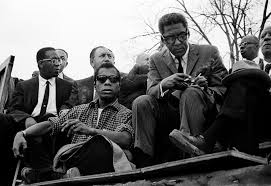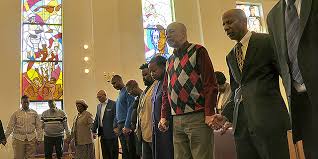While earning a Ph.D. at The Ohio State University, I decided to honor the path taken by my father and many uncles who were card-carrying union workers by focusing many of my studies on Labor History. I had lived a life that made any denial of the labor movement impact on my life foolhardy as it was instrumental in my material existence.
While studying America’s longest-running war between workers and owners, I encountered an illuminating quote: “Without work, all is rotten.” Those words influence my worldview to this moment. I lived in a home where work dictated so much about our lives, such as when we would vacation and what we could afford to eat.
I understood early on that my fate as a worker was no different than my ancestors. The only thing left to determine was what sector I would exchange labor for access to goods. Work anchored my life.

For obvious reasons, it is always daunting when matters of Race and labor converge. Of course, the monopolization of politico-economic resources by wicked white men contextualizes Black men’s engagement with work. Pew Center research supports Blacks’ observations about Black male employment challenges.
A recent study confirmed what Blacks already knew. According to the data, the engagement of Black men in the work sector lags behind all other groups (white, Asian, and Hispanic). Of course, there are reasons for this unfortunate yet familiar reality. The historical narrative and numerous studies have pointed toward a wicked brew of racial discrimination, inferior schools, incarceration, lack of apprenticeship, and job training opportunities as the culprits in the maintenance of far too familiar last-hired, first-fired positions ensnaring Black men.
While more Black men between the ages of 25 and 54 are working at an 81% rate that outpaces previous years, other groups outpace them with an 87% rate. These numbers only reflect those actively pursuing legitimate employment. The reported numbers of Black male unemployment understate the problem as such data fails to include the incarcerated.
Although a sober thought, Black men who are not gainfully employed are unmarriageable because they are unable to provide for a wife and offspring. Such realities severely handicap the Black community, whose flourishing hinges upon the family to serve as a cornerstone.
Ultimately, it becomes clear that a single policy decision is inadequate to solve what could be termed the most crucial matter facing Black America. There is no one-size-fits-all solution to such a historically-based problem undergirded by racism.
One thing is sure: without work, everything is rotten.
It always has been, and it always will be.
Dr. James Thomas Jones III
© Manhood, Race, and Culture 2024.




